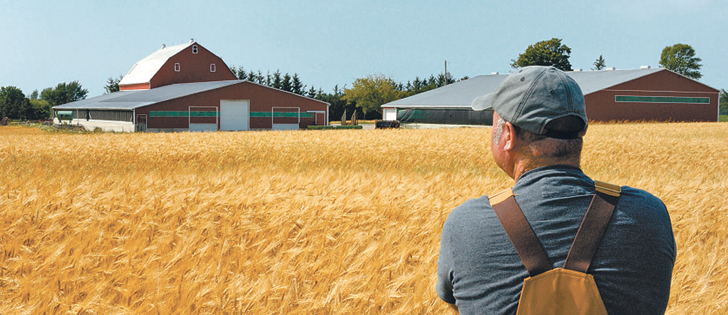Until recently, two things were certain in life: death and taxes.
We can now add a third one: botching the promotion of a tax reform for political gains.
Finance Minister Bill Morneau’s tax reform has been a communications disaster.
Claims about Ottawa’s intentions to revamp our tax system for small corporations have been ridiculous. Some predict a recession due to the changes proposed, while others declare the end of entrepreneurship as we know it. We should all take a collective deep breath and figure out how changes will affect our economy.
Read Also

Budget seen as fairly solid, but worrying cracks appear
The reaction from the agriculture industry to prime minister Mark Carney’s first budget handed down November 4th has been largely positive.
What needs to be underscored, though, is how Morneau’s vision for taxing small corporations will impact our agrifood sector.
Generally, the tax system is not really about pensions, legacy and social programs. Yet for a family-owned business, it is and there are thousands of them in agrifood.
In farming, Canada now has more than 43,000 incorporated farms, compared to around 23,000 incorporated farms in 2001.
Despite the fact that we have fewer farms today than in 2001, more of them have converted their operations into corporations to provide incentives to the next generation to take over the farm.
Proposed changes on capital gains would make it more expensive for a family member to acquire the farm than for a third party. Keeping families and jobs in rural Canada is not easy and many farmers use the tax system to secure the future of their businesses.
Income sprinkling is another issue Morneau is attempting to address. Corporations can now hire family members who work for the enterprise, which reduces the tax rate for everyone. Current rules about who can be compensated and at what level are ambiguous.
Morneau wants to change that, and for a good reason.
Some small corporations pay family members, who do not necessarily work for the company, to pay less taxes. This practice should stop but family businesses are different.
Defining tasks in a family-owned business can be difficult. Many of the contributions made by family members are ad hoc and not easily categorized. A family business is like, well, a family. The enterprise survives by relying on favours and duties as assigned. On a family-owned farm, a restaurant or in a small food processor, job profiles are vague, at best.
The tax reform political nightmare began in July when Ottawa launched a consultative process on how best to address tax planning practices that it believes are used to gain unfair tax advantages.
Individuals set up corporations to pay less in taxes in a variety of ways. Ottawa’s intentions are noble.
However, what has caused many of the problems is the condescending rhetoric coming out of Ottawa, labelling small business owners as cheats and greedy tax evaders. That was insulting.
The government anticipates that the new regulations will bring in barely $250 million a year. For those thinking that the Liberals are looking for ways to increase revenue to pay for a ballooning deficit, they are wrong. This is really about politics, pure and simple.
Prime Minister Justin Trudeau’s egalitarian agenda to serve the so-called middle class is motivating the government to implement these changes.
This is not about being unwilling to pay more taxes, it is about the viability of an entire economic sector.
Our tax regime should differentiate and give our rural economy and family corporations some level of immunity.
As Ottawa attempts to fix what is largely an urban issue, it shouldn’t penalize farming and agriculture-related family businesses.
The Liberal government will likely get its way in the end, but it should at the very least accommodate the unique intricacies of our agrifood sector.
Sylvain Charlebois is dean of the faculty of management at Dalhousie University in Halifax and a professor in food distribution and policy in the faculty of agriculture. This article first appeared in The Conversation Canada.















